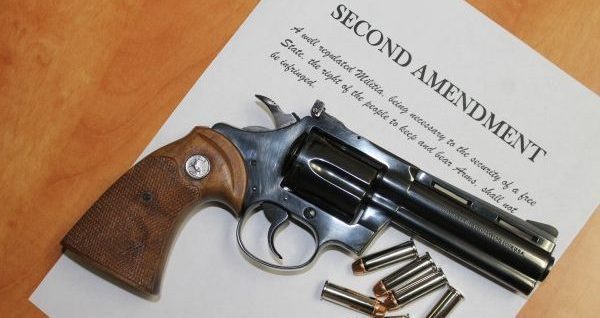
(Dave Workman photo)
The National Review online has just published a blistering critique of gun control’s racist history which, author T.S. Furey suggests in the first paragraph, could make the gun control movement “the next casualty of cancel culture.”
“For decades,” writes Furey, a fellow with the London Center for Policy Research, “gun-control advocates promoted greater police power as well as known practices of institutional racism within police firearms-licensing divisions.”
This article comes in the wake of an effort by anti-gun-rights groups to portray pro-Second Amendment organizations as racist. Ammoland News recently looked at this effort, noting how the gun prohibition lobby has “played the race card.”
Furey takes specific aim at the New York Police Department’s Licensing Division, and the Sullivan Act, considered by rights activist to be a Draconian gun control law that has kept generations of citizens disarmed and at the mercy of the city’s criminal element.
“New York’s Sullivan Act is one of the best examples of gun-control laws that put minorities at a disadvantage,” says Furey, “and it has been widely copied. Passed in 1911, the law addressed what was considered a growing problem of gun ownership among minorities, immigrants, labor organizers, and anyone seen as a threat.”
This arbitrary law allows police departments to add any requirements they see fit in order to deny someone a gun license, Furey explains.
“Reminiscent of practices any segregationist would appreciate,” the article states, “the NYPD License Division, with its perpetually white leadership and the blessings of the New York City Council, has used exorbitant fees, long English-only applications, expansive ID requirements, the need for applicants to take time off from work, and numerous other unconventional tactics to restrict license issuance.”
New York City’s penchant for excessive gun control was finally put on guard when last year the U.S. Supreme Court heard arguments challenging a handgun licensing restriction so onerous that, in order to avoid a high court ruling crushing the regulation, the city hastily changed it and the state assembly in Albany approved legislation to prohibit such an ordinance in the future.
This scramble amounted to a public acknowledgement that the law—prohibiting licensed handgun owners from taking their sidearms outside city limits for any purpose—was unconstitutional and they knew it. Apparently it never occurred to the authors of the restrictive law that anyone would have the nerve or the finances to challenge it in court.
According to a history of the case at Wikipedia, “Gun control groups petitioned New York City to change its gun laws prior to the case’s decision as to render the case moot, fearing that with a conservative majority, the Court would create case law that would promote wider gun ownership and weaken gun control legislation.”
Furey’s article may cause some discomfort for the gun prohibition movement, but it’s not likely to put anti-rights groups completely out of business.
Gun rights versus gun control is going to be a central issue in the 2020 elections. Michael Bloomberg’s Everytown for Gun Safety has already promised to spend at least $60 million to influence the outcome of this fall’s legislative and congressional races.